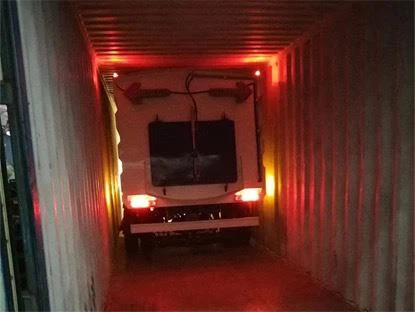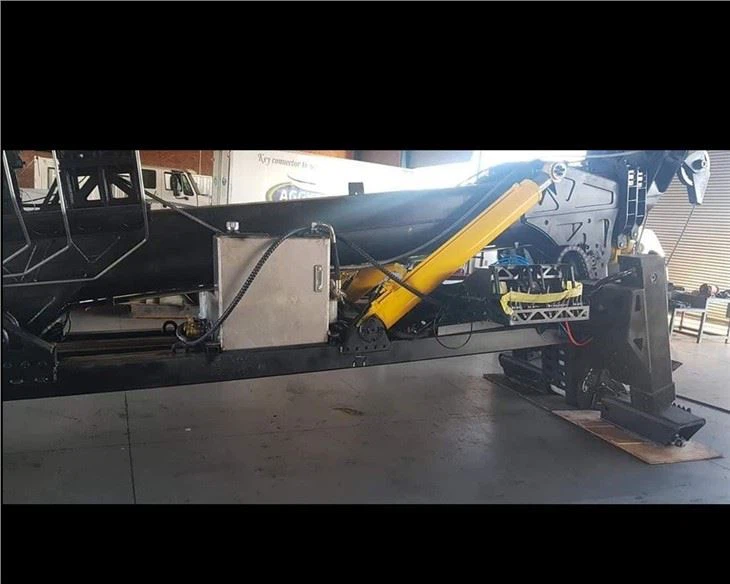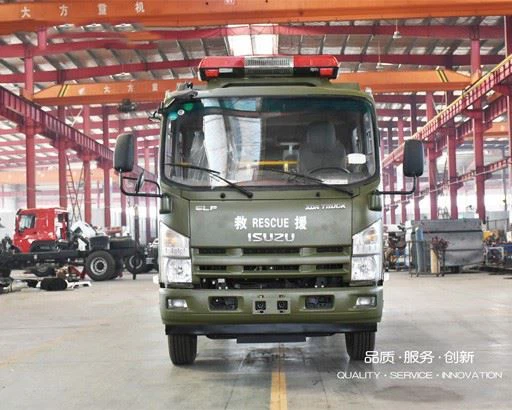What’s a Roll Off Truck? Understanding the Basics and Beyond

Introduction
Roll off trucks play an essential role in waste management and construction projects. With their unique design and functionality, these trucks provide an efficient way to transport heavy debris and large waste containers. In this article, we will explore what roll off trucks are, how they work, their benefits, types available, and practical examples of their use in various industries.

What is a Roll Off Truck?
A roll off truck is a specialized vehicle designed to transport roll-off containers, which are large waste receptacles often used for debris, recyclable materials, and construction waste. These trucks have a unique loading mechanism that allows the container to roll off and on to the truck bed easily, hence the name “roll off.”
How Roll Off Trucks Work
Roll off trucks are equipped with a hydraulic system that raises and lowers the container, allowing it to roll on or off the back of the truck. The process typically involves the following steps:
- The truck backs up to the desired location.
- The hydraulic system lifts the front of the container, allowing it to roll off the truck bed.
- The container is lowered onto the ground or designated area.
- When returning, the driver maneuvers the truck to align with the container and uses the hydraulic system to bring the container back onto the truck.
Benefits of Using Roll Off Trucks
1. Efficiency in Waste Collection
Roll off trucks streamline the waste collection process, especially for large-scale projects. The ability to load and unload containers quickly reduces downtime and enhances productivity.
2. Versatility
Roll off trucks can handle various types of materials, including construction debris, household waste, yard waste, and hazardous materials, making them suitable for multiple industries.
3. Container Size Options
These trucks can accommodate various container sizes, typically ranging from 10 to 40 yards, allowing businesses to select containers based on their specific needs.
4. Cost-Effective
Using roll off trucks can be more cost-effective than traditional waste management methods, as they often reduce the number of trips needed to handle significant waste volumes.
Types of Roll Off Trucks
1. Standard Roll Off Trucks
These trucks are equipped to handle standard-sized roll off containers and are typically used in residential and construction applications.
2. Extended Roll Off Trucks
Extended roll off trucks can carry larger or multiple containers at once, making them appropriate for larger projects that require more substantial waste removal.
3. Hook Lift Roll Off Trucks
Hook lift systems use a hook to lift containers, offering a more versatile solution for sites with limited space. They can handle various container types beyond roll off containers.
4. Side Loader Roll Off Trucks
These trucks can load containers from the side, making them particularly useful in tight spaces where standard back-loading trucks may struggle.
Practical Examples of Roll Off Truck Usage
1. Construction Sites
Construction projects generate significant waste, from scrap materials to old fixtures. Roll off trucks efficiently manage this waste by transporting multiple containers as needed.
2. Home Renovations
For homeowners undergoing renovations, renting a roll off container makes it easy to discard waste without cluttering the property. Roll off trucks efficiently deliver and pick up these containers.
3. Landscaping Projects
Yard waste can quickly accumulate during landscaping projects. Roll off trucks facilitate the disposal of branches, soil, and other debris, keeping the worksite clean.
4. Industrial Applications

Many industries, including manufacturing and retail, use roll off trucks to manage hazardous waste. Proper handling and quick transportation of such materials minimize health risks.
Choosing the Right Roll Off Truck
1. Assess Your Waste Type
Understanding the kind of waste you will be handling is crucial. Different materials may require different container sizes or types.
2. Container Size
Consider the volume of waste you expect to generate. Choose a container size that will accommodate your needs without overflowing.
3. Project Duration
Determine how long you will need the container. Some companies offer daily rates, while others may have weekly or monthly options.
4. Local Regulations
Check local regulations regarding waste disposal. Some areas have specific rules regarding types of waste that can be placed in roll off containers.
Maintenance and Safety Considerations
1. Regular Inspections
Routine inspections of the hydraulic system, brakes, tires, and containers help prevent accidents and ensure the truck operates efficiently.
2. Operator Training
Drivers should receive proper training on operating roll off trucks to avoid accidents during loading and unloading.
Cost of Roll Off Trucks
Costs can vary based on several factors, including the size of the container, distance to the disposal site, and rental duration. Generally, the average costs may include:
| Container Size | Average Cost |
|---|---|
| 10 Yard | $300 – $450 |
| 20 Yard | $350 – $550 |
| 30 Yard | $400 – $600 |
| 40 Yard | $500 – $800 |
Environmental Impact of Roll Off Trucks
Waste Reduction
Roll off trucks support waste reduction efforts by making waste disposal more efficient, helping to encourage recycling and responsible waste management practices.
Energy Efficiency
Modern roll off trucks are designed with improved fuel efficiency, reducing carbon footprint compared to older models.
FAQs
1. What types of materials can be disposed of in roll off containers?
Roll off containers are suitable for various materials, including construction debris, yard waste, furniture, appliances, and certain hazardous materials, depending on local regulations.
2. How long can I keep a roll off container?
The rental duration typically depends on your project needs. Most companies offer daily, weekly, or monthly rentals, with charges applied accordingly.
3. Do I need a permit to place a roll off container?
Permitting requirements vary by location. It’s essential to check with local authorities to see if you need a permit to use a roll off container on public property.
4. What should I avoid placing in a roll off container?
Avoid placing hazardous materials, such as chemicals, batteries, or paints, in roll off containers, as they may require special disposal methods.
5. How are roll off containers delivered?

Roll off containers are typically delivered by a roll off truck, which will place the container in the designated area, usually at the customer’s site.
6. Can I use a roll off container for recycling?
Yes, many roll off companies offer containers specifically for recyclable materials, aiding in effective waste separation and recycling efforts.
